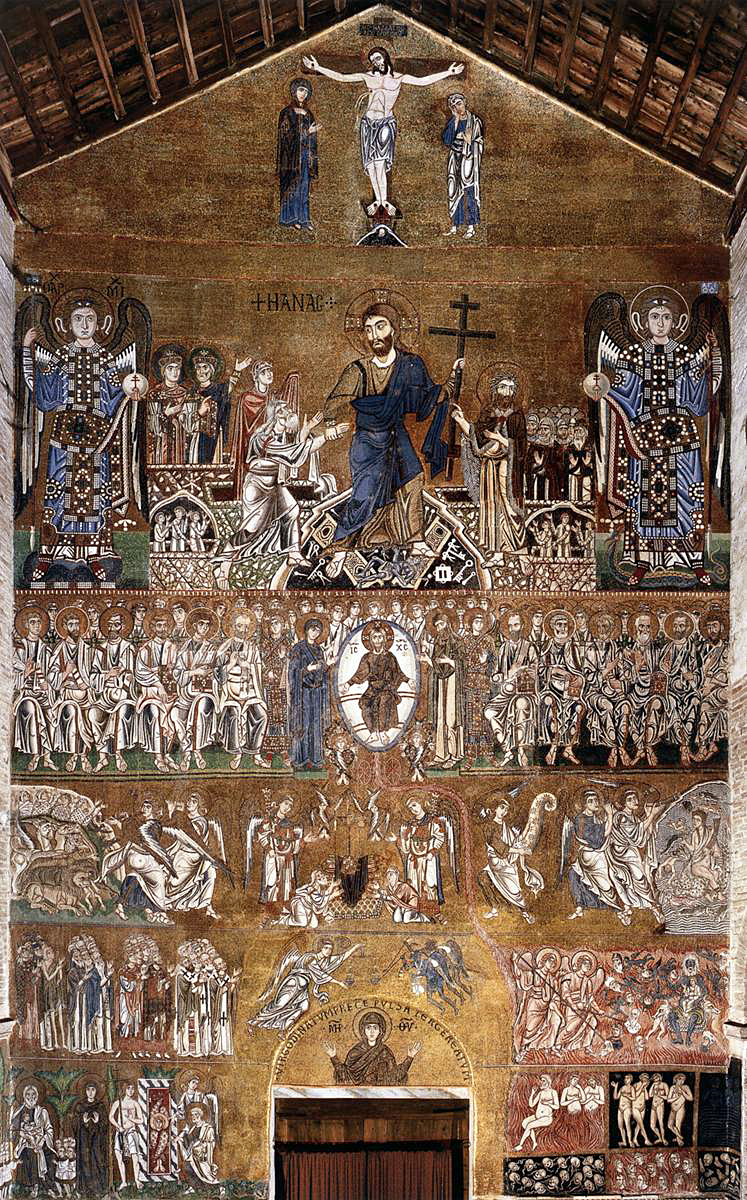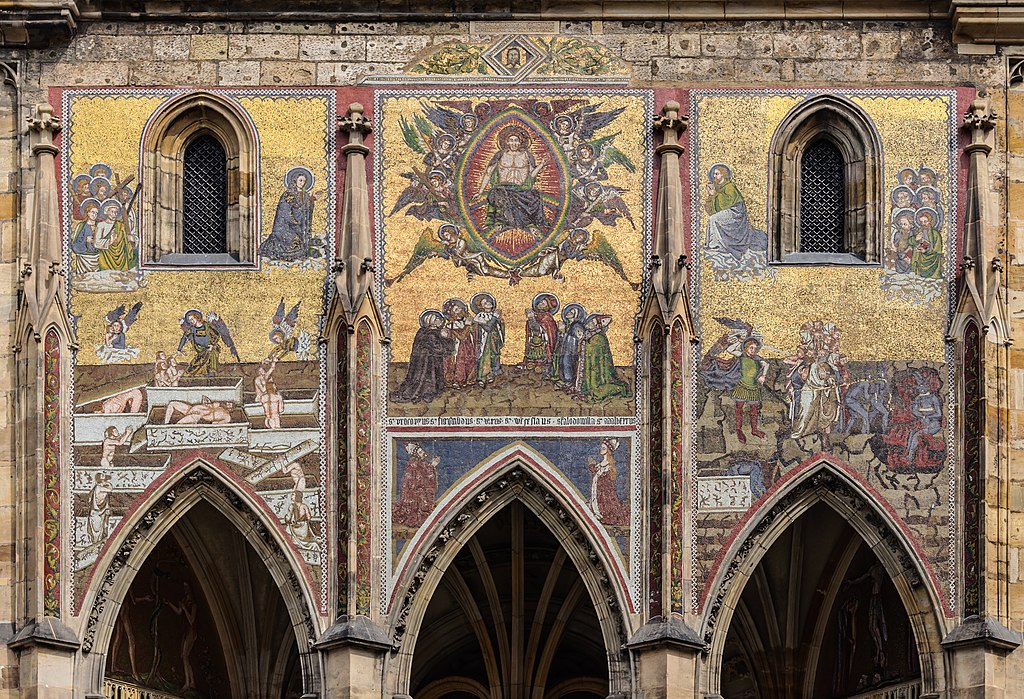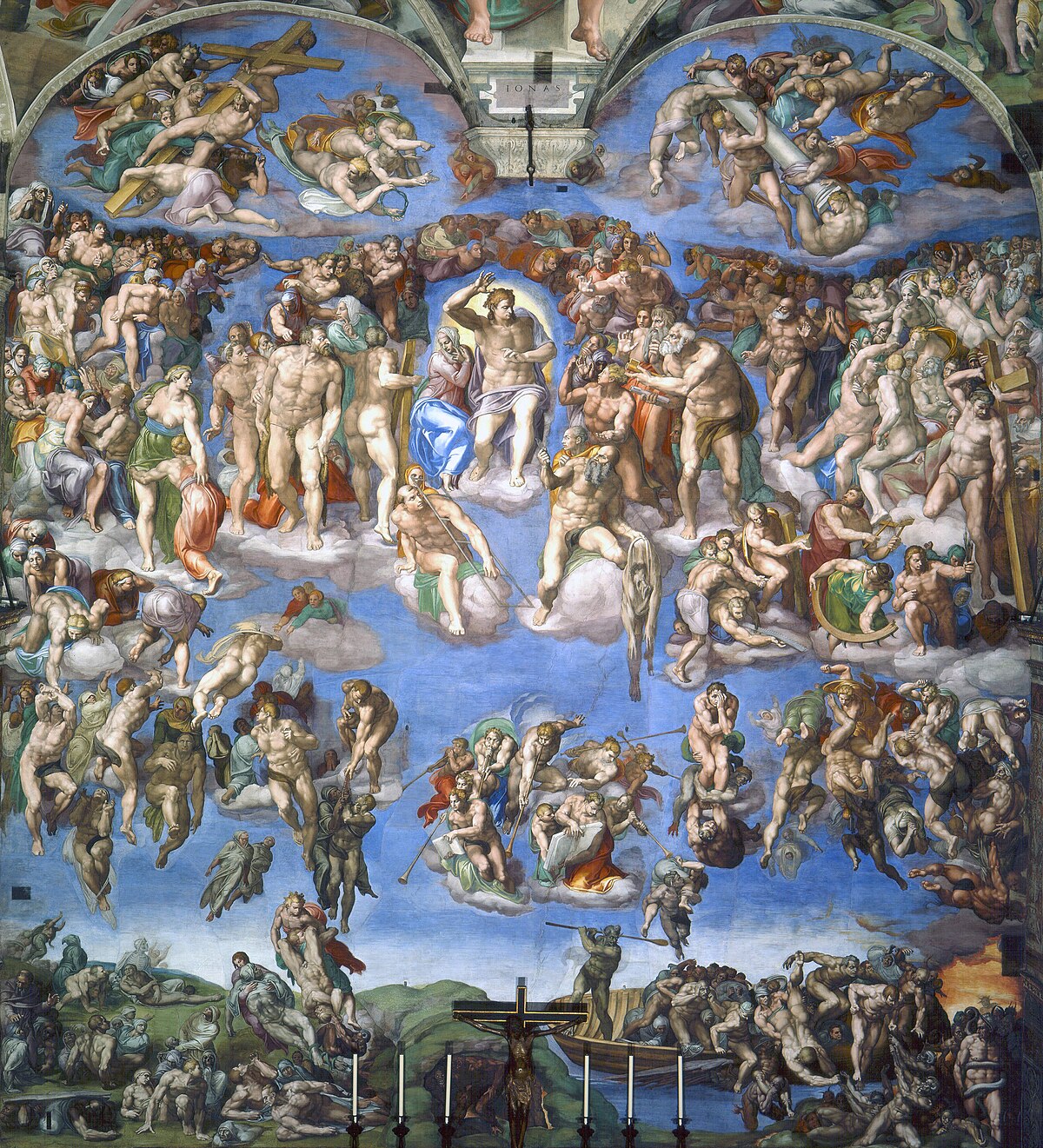- Goose
- Cogito ergo sum
 Offline
Offline 
- Registered: 1/29/2015
- Posts: 13,427
The Last Judgment
A "doom" is a traditional English term for a painting or other image of the Last Judgment in Christian eschatology when Christ judges souls to send them to either Heaven or Hell.
The subject was very commonly painted on a large scale on the western wall of churches, so it was viewed as people left the church, and the term is typically used of these, rather than depictions of the Last Judgement in other locations or media. Many examples survive as wall-paintings in medieval churches, most dating from around the 12th to 13th centuries, although the subject was common from the 1st millennium until (in countries remaining Catholic) the Counter-Reformation. The most famous of all doom paintings, The Last Judgment by Michelangelo in the Sistine Chapel, painted in 1537 to 1541, comes at the end of the tradition, and is unusually sited on the east wall behind the altar.
Mosaic from the 12 century
Torcello, Italy
12 Century. Chaldon Church, Surrey
Giotto, 14th century. Scrovegni Chapel
14th Century Mosaic, Prague
Fra Angelica, 14th Century
Lochner, 15th Century
Voronet Monastery, Romania. 15th Century
Michelangelo. 16th century. Sistine Chapel
17th Century. Poland John Martin. 19th Century
John Martin. 19th Century
Last edited by Goose (10/09/2017 7:24 am)
We live in a time in which decent and otherwise sensible people are surrendering too easily to the hectoring of morons or extremists.
- Just Fred
- Duke of Cortona
 Offline
Offline 
- Registered: 1/29/2015
- Posts: 3,863
Re: The Last Judgment
Good job there, Goose. For me, the most interesting and powerful is the work by Giotto and the west wall of the Sistine Chapel by Michelangelo. But, then I'm partial to Italian Renaissance artworks. Interesting that the flayed skin in Michelangelo's work is actually a self portrait.
- Goose
- Cogito ergo sum
 Offline
Offline 
- Registered: 1/29/2015
- Posts: 13,427
Re: The Last Judgment
Just Fred wrote:
Good job there, Goose. For me, the most interesting and powerful is the work by Giotto and the west wall of the Sistine Chapel by Michelangelo. But, then I'm partial to Italian Renaissance artworks. Interesting that the flayed skin in Michelangelo's work is actually a self portrait.
I fell in love with Giotto in that chapel.
But 15 minutes is not remotely enough time in there!
We live in a time in which decent and otherwise sensible people are surrendering too easily to the hectoring of morons or extremists.
- •
 1 of 1
1 of 1